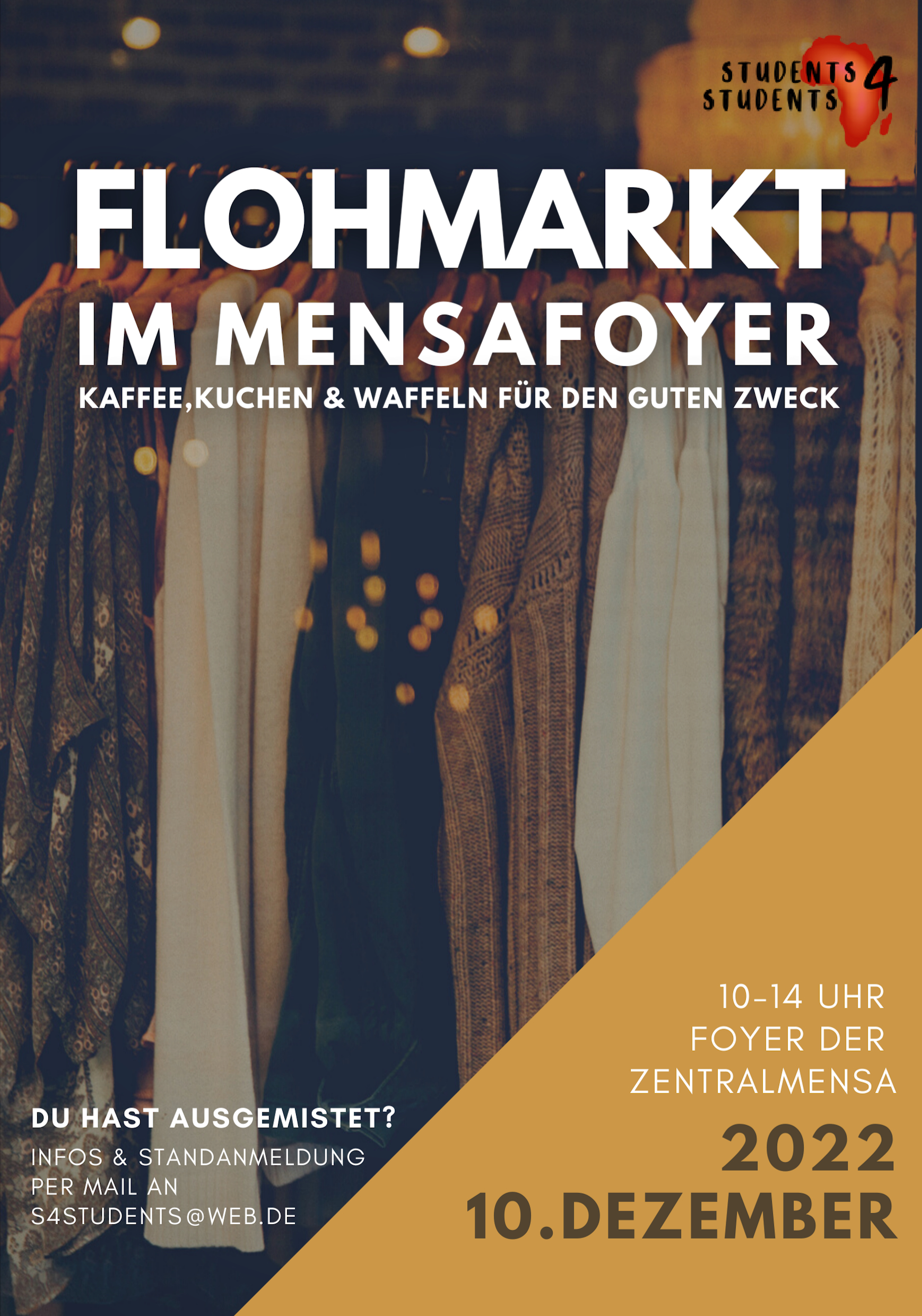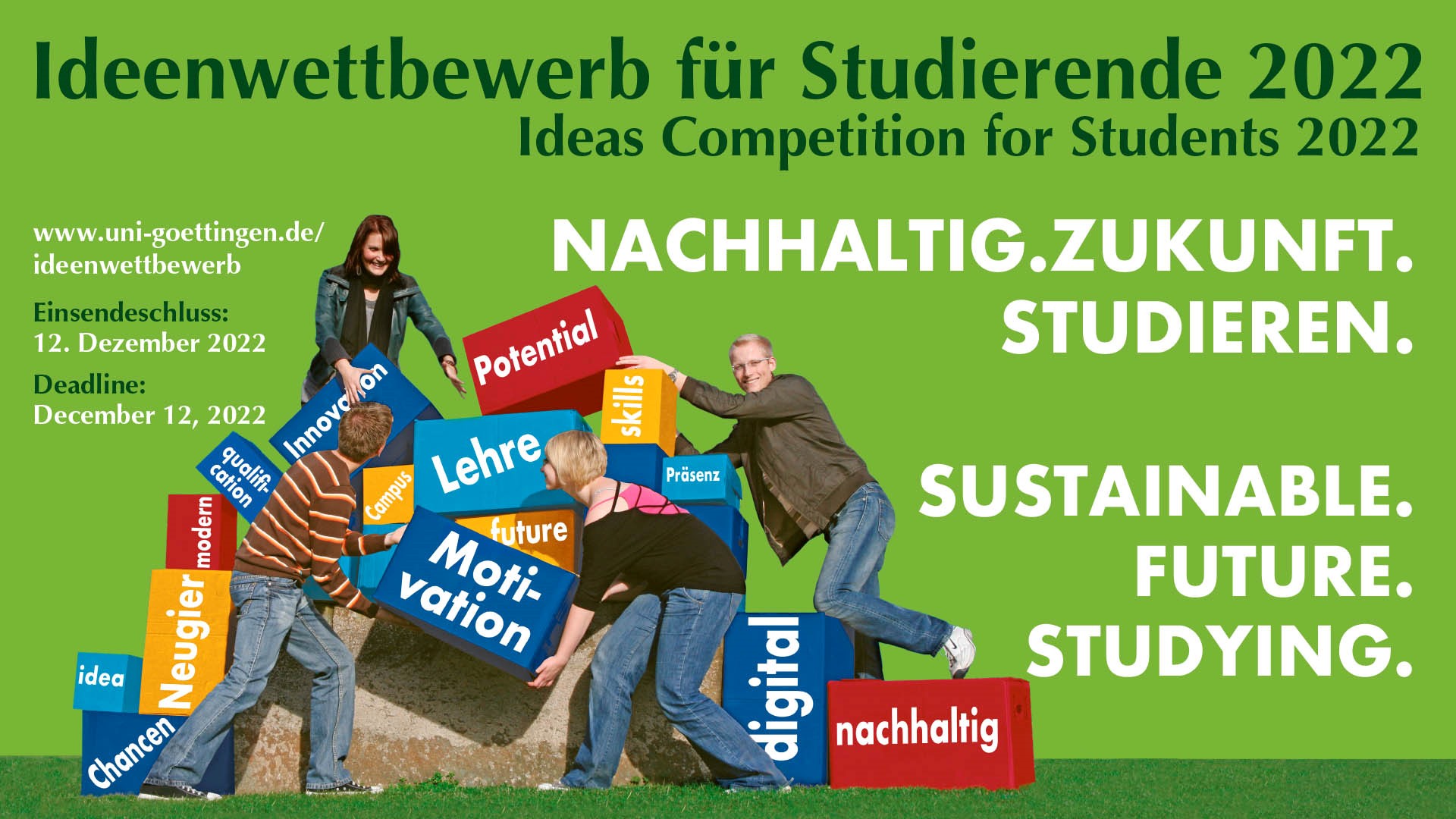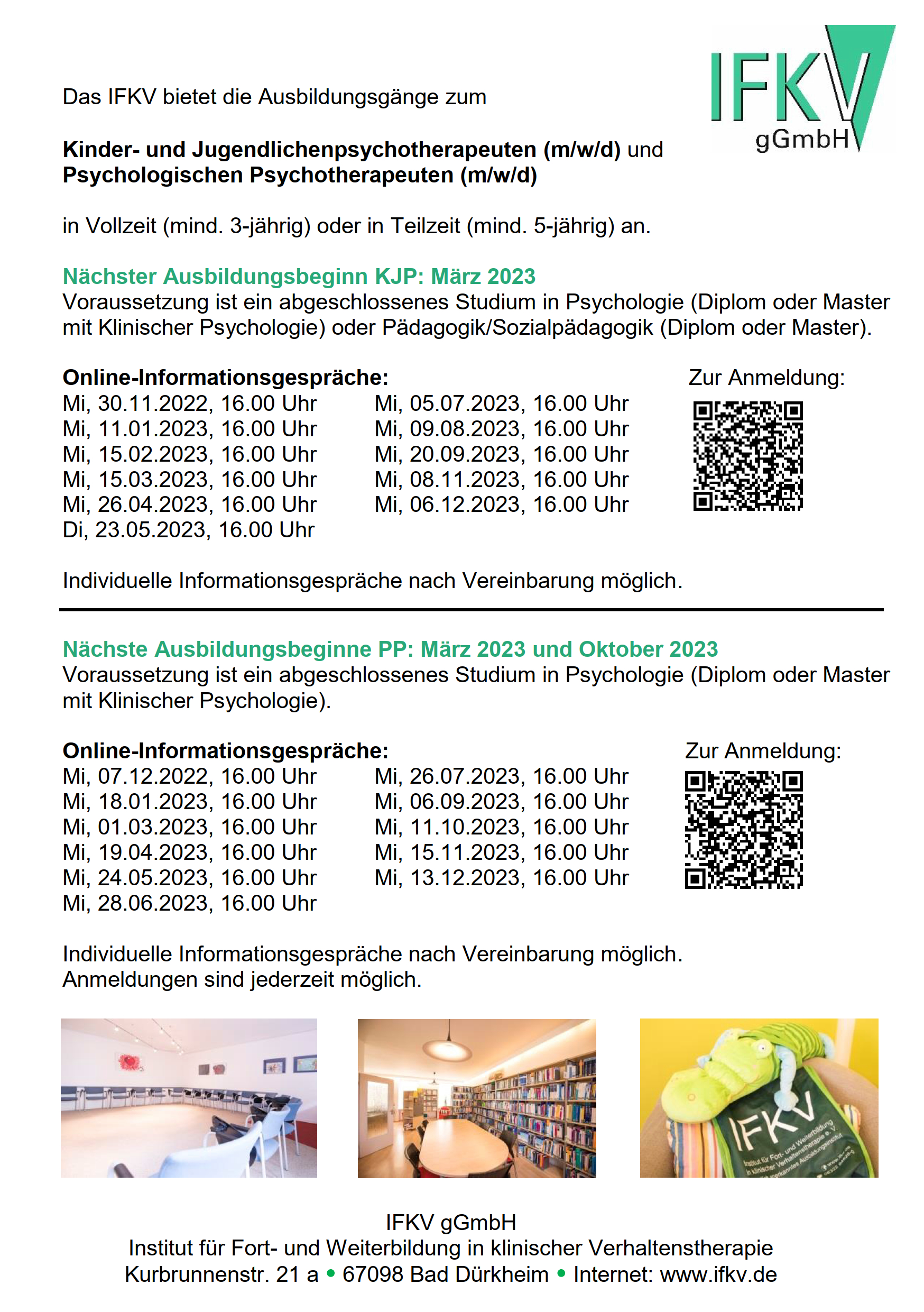Flohmarkt – Samstag, 10.12. – ab 10:00 Uhr – Zentralmensa-Foyer

Flohmarkt – Samstag, 10.12. – ab 10:00 Uhr – Zentralmensa-Foyer


Unter dem Motto »Nachhaltig.Zukunft.Studieren.« lädt die Universität alle Studierenden herzlich ein, Vorschläge zu Lehr-, Studien- und Serviceangeboten beim Ideenwettbewerb für Studierende einzubringen.
Einsendeschluss ist der 12. Dezember 2022.
Die besten Initiativen werden mit einem Preisgeld von bis zu 500 Euro prämiert.
Schirmherr des Ideenwettbewerbs 2022 ist der Vizepräsident für Studium und Lehre, Herr Professor Dr. Christian Ammer.
Weitere Informationen und Teilnahmebedingungen (u. a. Richtlinie des Ideenwettbewerbs) unter www.uni-goettingen.de/ideenwettbewerb.

Die Einsicht zu der Klausur für das Modul „B.Psy.301“ erfolgt ausschließlich mit vorheriger Terminvergabe durch Frau Schneider am
Montag, den 05.12.2022 von 7:30 – 11:00 Uhr in Raum 2.102
Falls Sie die Klausureinsicht wahrnehmen möchten, bitten wir Sie, sich spätestens bis Mittwoch, den 30.11.2022 um 10:00 Uhr per E-Mail an Frau Schneider, mschneider@gwdg.de, zu wenden, danach werden die Termine für den 05.12. vergeben. Spätere Anmeldungen können nicht mehr organisiert werden. Bitte benutzen Sie für diese E-Mail Ihre studentische E-Mail-Adresse, über die Ihnen dann der Termin mitgeteilt wird.
Es wird ausdrücklich darauf hingewiesen, dass die Klausureinsicht nur mit vorheriger Terminvergabe erfolgen kann. Einsichten ohne Termin sind nicht möglich.
Dear all,
You are invited to two talks that will take place in early December.
On December 1st, Mariel Goddu will give a talk at CogSci colloquium (at 12:15, Waldweg 26 Room 6.103). She will talk about causal reasoning. Title & Abstract will be forwarded soon.
On December 8th, Jonathan Phillips will give a talk at a joint RTG 2070 & CogSci Colloquium (at 12:15, Waldweg 26 Room 6.103):
Decomposing Modal Thought
Both speakers have agreed to have few single/small-group meetings after/before their talks. If you are interested in meeting with them, please register by Friday (November 25) by filling out this registration form:
We are also organizing no-host dinners with the speakers on December 1st (with Mariel Goddu) and on December 7th (with Jonathan Phillips; please note that the dinner with him will take place one day before his talk). Please register via the aforementioned form if you’d like to join us at dinners.
Best wishes,
Feride
ProbandInnen gesucht (1,5-2 VP-Stunden)!
Für meine Masterarbeit suche ich ProbandInnen für eine Eye-Tracking Studie zur Einschätzung von Gesichtsemotionen
Teilnahmebedingungen:
– m/w/d
– 18 – 35Jahre
– keine (neuro-) psychiatrischen Erkrankungen
– gute Sehleistung oder weiche Kontaktlinsen / Brille
– keine Teilnahme an Vorexperimenten zum selben Thema
Dauer: ca. 90 Minuten
Wo? GEMI (neben Turmmensa)
Vergütung: 1,5 – 2 VP-Stunden
Anmeldung:
– Doodle Umfrage: https://bit.ly/3EsYnUW
– oder per QR-Code:

– oder ✉ an: postannoraweber@gmail.com
Ich freue mich über jede/n, die/der mitmacht!
Nora
„Ohne Homeoffice, Ohne mich?!“
Wie wichtig ist Dir Homeoffice im zukünftigen Arbeitsalltag?
Liebe*r Studierende*r,
auch Du wirst nach dem Studium in die Berufswelt einsteigen. Die Entscheidung für ein Unternehmen Deiner Wahl ist dann von verschiedenen Faktoren abhängig. Vor allem das Arbeiten von zu Hause aus (Homeoffice) wurde in den letzten zwei Jahren, bedingt durch die Coronapandemie, vielfach thematisiert. Erkenntnisse über die Wichtigkeit von Homeoffice für zukünftige Berufseinsteiger*innen liegen jedoch kaum vor. Daher führe ich eine Online-Befragung über die Wichtigkeit von Homeoffice für Studierende im zukünftigen Arbeitsalltag durch. Diese richtet sich an alle Studierenden, von Erstsemestern bis Fastabsolvent*innen.
Die Umfrage findet im Rahmen meiner Bachelorarbeit am Institut für Soziologie (Department für Sozialwissenschaften) der TU Braunschweig statt.
Die Bearbeitung des Fragebogens dauert circa 15 Minuten. Am Ende kannst Du als Dank für Deine Teilnahme einen von drei Thalia-Gutscheinen im Wert von jeweils 15 Euro gewinnen.
Zu der Umfrage kommst Du über diesen Link: https://limesurvey.rz.tu-bs.de/377888?lang=de
Gerne darfst Du die Befragung an andere Studierende weiterleiten. Jede Teilnahme hilft mir! Bei Rückfragen zur Befragung bin ich per E-Mail unter a.reichenau@tu-braunschweig.de erreichbar.
Ich freue mich sehr, wenn Du mich unterstützt!
Vorab daher schonmal vielen Dank!
Viele Grüße
Anika Reichenau